All the Answers
Well-known member
In Unión por la Patria they point against article 178 of the Bases Law that the Senate is debating and call for its annulment - Infobae

Source:
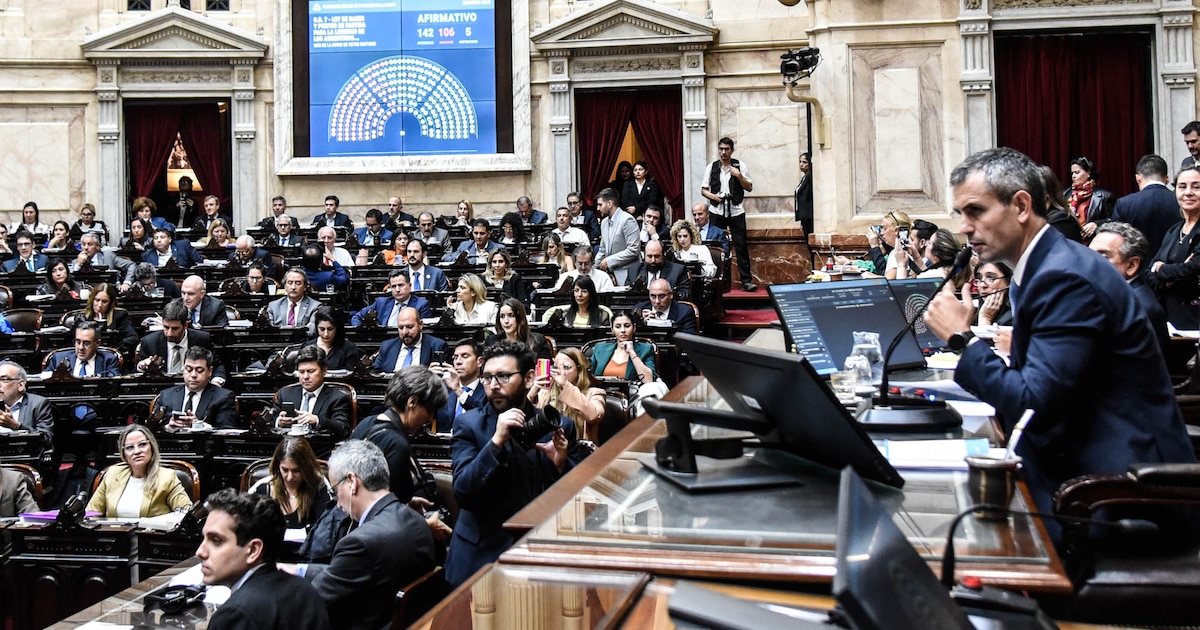
En Unión por la Patria apuntan contra el artículo 178 de la Ley Bases que debate el Senado y agitan un pedido de nulidad
En el bloque opositor aseguran que se cambió la redacción del artículo sin cumplir los procedimientos previstos en el reglamento. Advierten que Martín Menem debió hacerlo votar en particular con el nuevo texto. La respuesta del oficialismo
May 08, 2024
In the opposition bloc they claim that the wording of the article was changed without complying with the procedures provided for in the regulations. They warn that Martín Menem should have made him vote specifically with the new text. The response of the ruling party
By Facundo Chaves
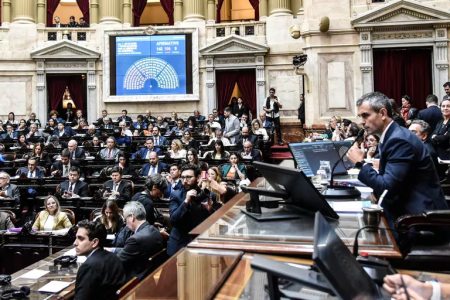
The president of the Chamber of Deputies of Argentina, Martín Menem, during the debate on the Bases Law
The opposition bloc of Unión por la Patria renewed its questions about the wording of the Bases Law that began to be debated in the Senate, due to a new difference that was detected with the text that was voted on in Deputies last week. To the challenges raised yesterday by the president of that bench, Germán Martínez , due to differences between both versions - which were recognized and corrected by the ruling party through errata - last night was added the detection of a new incompatibility that could justify a request for annulment for an alleged “irregularity that cannot be corrected.”
The main opposition bench decided in the last few hours to wage a battle on all fronts to prevent both the “Law of Bases and Starting Points for the Freedom of Argentines” and the reforms included in the “fiscal package” from being approved by the High camera. It was after the Lower House gave the green light, both in general and in particular, to the two initiatives presented by President Javier Milei in Congress.
Deputy Martínez spread on social media two differences between the texts that were approved by the Deputies and what actually reached the Senate. Faced with these remarks, the president of the Lower House, Martín Menem, responded: “We appreciate the review of the text of the Base Law and having detected simple involuntary typing errors in the transcription of the communication of the law (...) In the errata already submitted to the Senate, such material errors have been corrected and in this case, the publication in the respective Issues Bulletin will be complied with, not like in some of the errata of the previous administration, which have been ignored. said procedure and have gone unnoticed.”
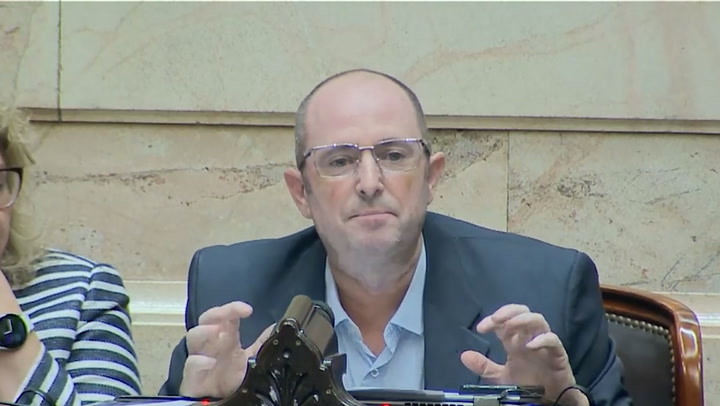
El diputado Pablo Toredo y el error de redacción de un capítulo de la Ley Bases que se votó
El diputado Pablo Toredo y el error de redacción de un capítulo de la Ley Bases que se votó
cdn.jwplayer.com
Deputy Pablo Todero and the drafting error of a chapter of the Bases Law that was voted on in the lower house
The “new” case that appeared late on Tuesday has to do with the content of article 178 of the Bases Law that the Senate of the Nation began to discuss. According to a confidential report shared by senior opposition leaders, the text of that item was changed in Deputies without complying with the procedure provided for in the regulations. For the opposition, since it was modified without a debate and a private vote in the chamber, there could be cause to request its annulment.
In the document accessed by Infobae , it is noted that it would be an “irregularity that cannot be corrected” since the original text of an article that is essential to the Large Investment Incentive Regime (RIGI) was modified after the session of the Bases Law ended. ). The facts indicated in the confidential report describe that at midnight from Monday to last Tuesday, the national deputy Pablo Todero (Unión por la Patria/Neuquén) “out loudly warned about irregularities” in the content of article 177°, due to which cited other articles with incorrect numbering.
It was an “observation for rectification purposes” made by that Patagonian deputy, who urged making an important correction. “Faced with the correct reporting, the reporting member had to answer it and propose a new corrected text that would correct the obvious and gross error,” warns the paper that was circulated last night among key UP leaders.
“The procedure that should have been followed by the Presidency of the Chamber was to request a fourth intermission and have the error corrected for a subsequent vote. Menem asked for a fourth intermission, but once it was exhausted and faced with the 'pressure to pass the law', the reporting member did not correct the serious error alerted by the Deputy of Unión por la Patria and therefore the original formula was voted on," he warned. The report.
For the leadership of UP, since there was a warning of a “correctable error”, the reporting member - representative Santiago Santurio (La Libertad Avanza/Buenos Aires) - had to “write a new article and submit it to the body's consideration and vote; This mechanism was the only one adjusted to the principle of legality if a new wording was to be incorporated into the agenda being processed.”
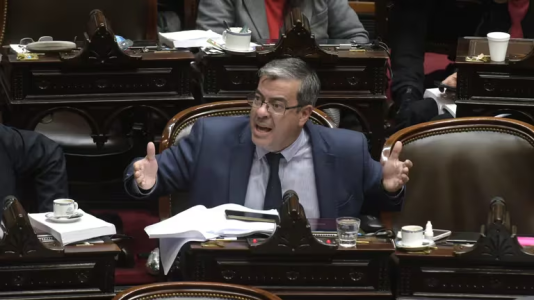
Representative Germán Martínez was the first to warn about differences between the text approved in the Deputies and the one that reached the Senate (photo Gustavo Gavotti)
Specifically, what is questioned is that the original article that the Lower House debated and approved had this content:
ARTICLE 177.- With the limitations that arise from the last paragraph of article 289 , the investment plan that had been approved at the time of approval of the application for membership, may be modified by the VPU without the need for prior approval by the the Enforcement Authority, must, however, notify the modification to the Enforcement Authority within five (5) business days of being decided or known, and must also proceed to update the information presented as a sworn statement in accordance with article 287 .
And that the Senate received, instead, the following content:
Article 178.- With the limitations that arise from the last paragraph of article 176 , the investment plan that had been approved at the time of approval of the application for membership, may be modified by the VPU without the need for prior approval by the application authority, must, however, notify the modification to the application authority within five (5) business days of being decided or known, and must also proceed to update the information presented as a sworn declaration in accordance with article 174 .
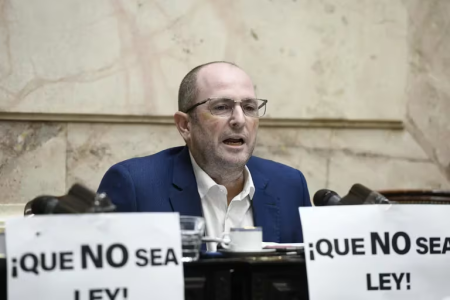
On the night of the debate, deputy Pablo Todero warned of errors in the citation of non-existent articles in the Bases Law
The same day that the Bases Law had half a sanction and in response to the proposal made by Deputy Todero when the vote was taking place in particular, Menem responded: “ The Secretariat is going to be empowered to re-list the articles due to the errors that occurred when The text was re-numbered . “It is a referral error.” After that, a decision was made on Title VIII, Chapter III, articles 169 to 179: it was approved with 136 affirmative votes, 110 negative votes and 5 abstentions.
Given these differences, Unión por la Patria once again considered the possibility of presenting a request for annulment. This is a procedural sanction of enormous severity, since “it removes all valid legal effect from an act dictated by any power of the State in contrast to the established forms and that generates harm.” In the document analyzed by the opposition bloc, it is highlighted that “the clear economic content and the authorizations and modifications regulated in the article in crisis is furthermore indicative of the harmful scope of the pseudo-legislative activity, undertaken or validated by the Presidency of the Chamber of Deputies of the Nation.”
It is a furious criticism against Martín Menem and confirmation that the battle against the Bases Law is now all or nothing.

